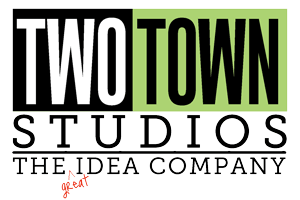Dude, Like, How About My Stuff?
As someone who has been in the sales business for many years, I was horrified to receive the following email solicitation recently (from a company we all know and many work with):
Hello my name is Xxxxxx. I’m with xxxxxxx xxxxxxxx. I’m here to see if you were ready to place an order with us for this season. I noticed you have been purchashing the coasters, the every day greeting ccards and the seasonal cards. Please check out our website to see if there is anything else in there that might catch your eyes.
www.(abcdefgh).com Also be sure to check out the SALES we have going on for this month. Don’t miss out on some great items. IF you have your order ready please call us at 800-999-9999 or try our fax at 800-999-9999
I know you just placed an order with us a few months back and I thank you for that. I just don’t want you to miss out on our monthly sales.
Thanks, hope you have a great rest of the week!!!
Xxxxxx Xxxxxxx
Senior Exectutive Manager
Xxxxxx Xxxxxx
Phone 800-999-9999
Fax 800-999-9999
Seriously? I have left the misspellings, missing punctuation, odd spacing and more intact – this is, other than the deleted info, exactly how it was sent. Yes, we have a tax number, yes we could function as a retailer, NO we don’t sell those products and NO we have never purchased anything from this company.
We license TO them.
A few tips on writing your cover letter/intro email to someone, such as an art director or agent, in our industry:
1. While art licensing may be appear to be a bit more casual than typical ivory tower business, it is still a business solicitation and you need to be professional, both in tone and construction. Look up how a business letter is crafted and do it correctly. Especially important if you are cold mailing.
2. Do your research, do your research, do your research. It’s that important. You lose all credibility when you misspell a name, assume they make items they don’t, or send them art that is not related to their product categories and/or art styles.
3. Be brief and to the point. Do NOT try to “sell” in the cover letter. Identify yourself, note that you are an artist asking for consideration, include maybe one or two sentences about you and your style and then sign off; that’s about it. (Make sure your contact information is included). We often get long, rambling intros included with submissions, and trust me on this – they don’t help your case. Quite the opposite.
4. The best approach is to send a link to designs that can be viewed online. In that case it can also be advantageous to send ONE small jpg as an attachment, however if you do send one make it your best shot, think of it as a teaser. If you don’t have an online gallery, send ONLY A FEW appropriately sized, carefully selected lo-res jpgs that show your style and expertise. Do not send a giant PDF or a big portfolio unless you are invited to do so. Be sure to have your name and phone or email on every image, they can easily get separated from your message.
5. Follow up in a couple weeks to see if they received it, not to get an answer. If they like it and want to see more they will be contacting you. If they haven’t had time to review, or don’t see a fit, you may or may not hear back from them. When submitting, just remember they are under no obligation to acknowledge receipt or give you an answer – some will and some will not, and there’s no telling which it will be. It’s business, not personal, so don’t take it the wrong way.
Good luck!

Leave a Reply
Want to join the discussion?Feel free to contribute!